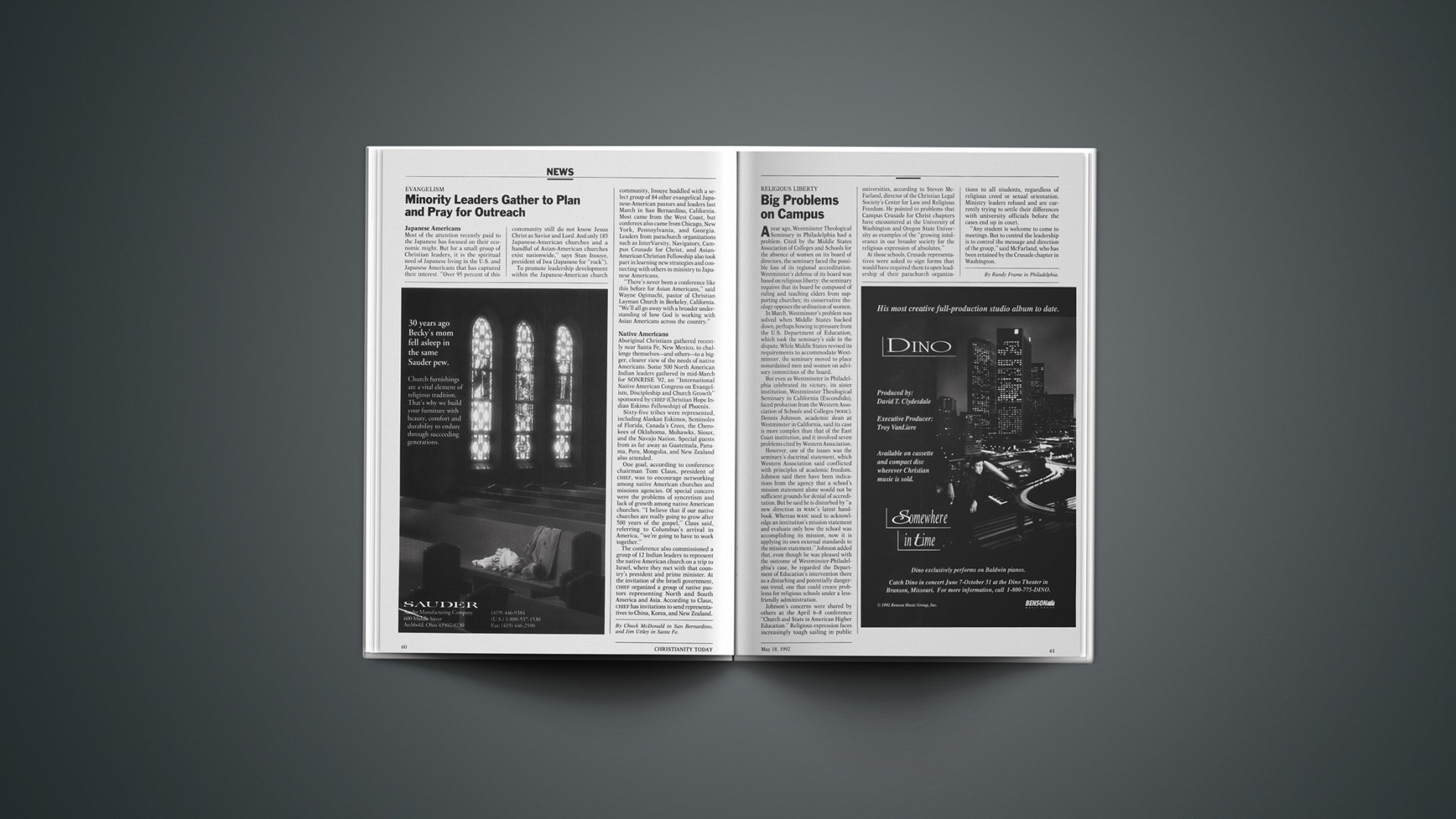A year ago, Westminster Theological Seminary in Philadelphia had a problem. Cited by the Middle States Association of Colleges and Schools for the absence of women on its board of directors, the seminary faced the possible loss of its regional accreditation. Westminster’s defense of its board was based on religious liberty: the seminary requires that its board be composed of ruling and teaching elders from supporting churches; its conservative theology opposes the ordination of women.
In March, Westminster’s problem was solved when Middle States backed down, perhaps bowing to pressure from the U.S. Department of Education, which took the seminary’s side in the dispute. While Middle States revised its requirements to accommodate Westminster, the seminary moved to place nonordained men and women on advisory committees of the board.
But even as Westminster in Philadelphia celebrated its victory, its sister institution, Westminster Theological Seminary in California (Escondido), faced probation from the Western Association of Schools and Colleges (WASC). Dennis Johnson, academic dean at Westminster in California, said its case is more complex than that of the East Coast institution, and it involved seven problems cited by Western Association.
However, one of the issues was the seminary’s doctrinal statement, which Western Association said conflicted with principles of academic freedom. Johnson said there have been indications from the agency that a school’s mission statement alone would not be sufficient grounds for denial of accreditation. But he said he is disturbed by “a new direction in WASC’s latest handbook. Whereas WASC used to acknowledge an institution’s mission statement and evaluate only how the school was accomplishing its mission, now it is applying its own external standards to the mission statement.” Johnson added that, even though he was pleased with the outcome of Westminster-Philadelphia’s case, he regarded the Department of Education’s intervention there as a disturbing and potentially dangerous trend, one that could create problems for religious schools under a less-friendly administration.
Johnson’s concerns were shared by others at the April 6–8 conference “Church and State in American Higher Education.” Religious expression faces increasingly tough sailing in public universities, according to Steven McFarland, director of the Christian Legal Society’s Center for Law and Religious Freedom. He pointed to problems that Campus Crusade for Christ chapters have encountered at the University of Washington and Oregon State University as examples of the “growing intolerance in our broader society for the religious expression of absolutes.”
At those schools, Crusade representatives were asked to sign forms that would have required them to open leadership of their parachurch organizations to all students, regardless of religious creed or sexual orientation. Ministry leaders refused and are currently trying to settle their differences with university officials before the cases end up in court.
“Any student is welcome to come to meetings. But to control the leadership is to control the message and direction of the group,” said McFarland, who has been retained by the Crusade chapter in Washington.
By Randy Frame in Philadelphia.










